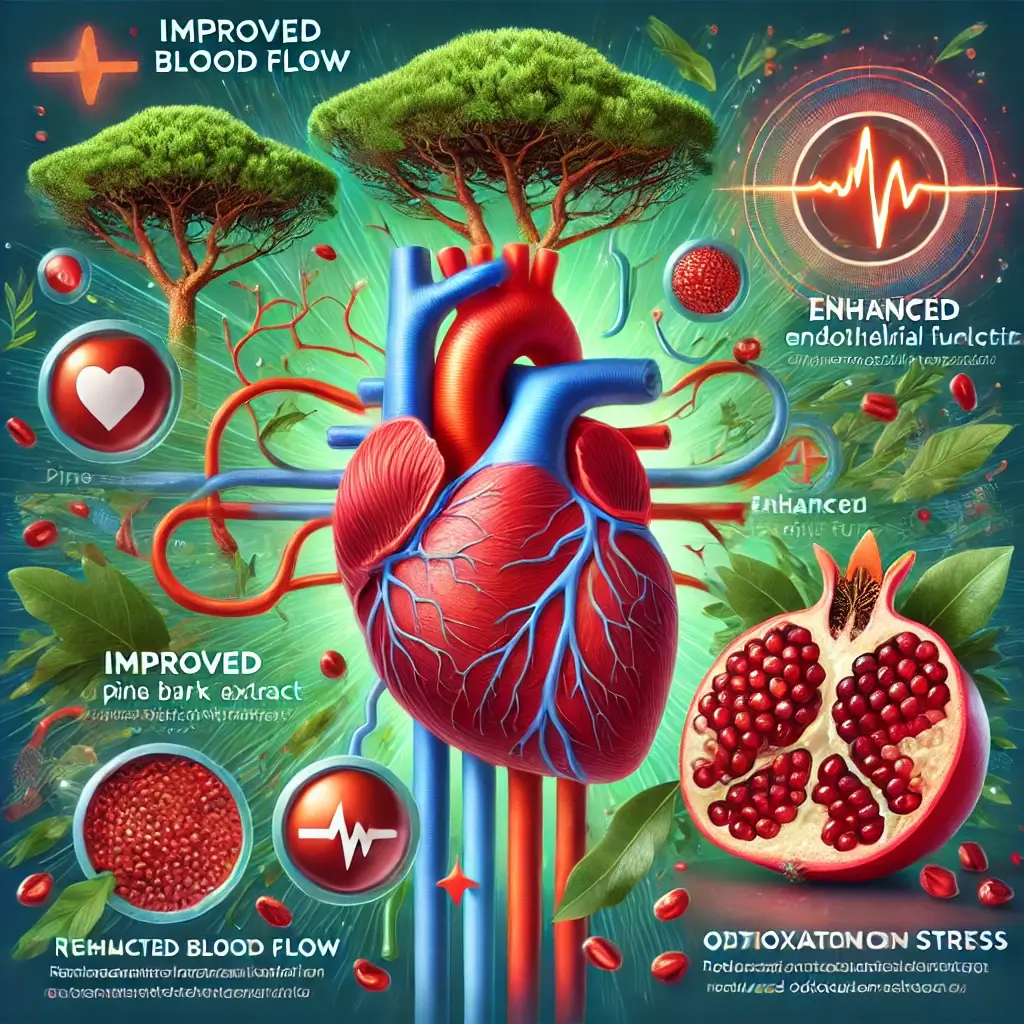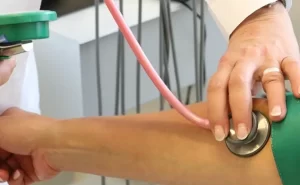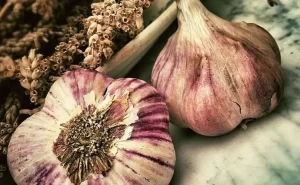Clinical Evidence: How Pine Bark and Pomegranate Revolutionize Men’s Cardiovascular Health
Understanding the Foundation of Men’s Health and Circulation
Men’s health is a multidimensional aspect of overall well-being, with cardiovascular and sexual health at its core. The ability to maintain optimal circulation delivery system is fundamental not only for physical performance but also for mental sharpness and longevity. In recent years, there has been growing interest in natural compounds for vascular health. Among these, pine bark extract and pomegranate have emerged as powerful allies.
Natural Compounds for Vascular Support
Pine bark extract, derived from the bark of maritime pine trees, is rich in proanthocyanidins. These potent antioxidants for endothelial function have been extensively studied for their ability to support endothelial function, reduce oxidative damage, and promote nitric oxide (NO) production, a key player in vascular health. On the other hand, pomegranate is celebrated for its high levels of punicalagins and ellagic acid, which improve arterial elasticity, combat inflammation, and support heart health.
Synergistic Benefits for Age-Related Health
When combined, these compounds offer a synergistic solution for circulatory decline and enhance vascular performance. They work together to improve blood flow, mitigate the risk of chronic illnesses, and promote vitality. This article explores the science behind these compounds, their clinical evidence, and practical applications to empower men in achieving their health goals.
Scientific Research and Clinical Evidence
Scientific research validates the individual and combined benefits of pine bark extract and pomegranate for vascular health. Here are some key findings:
Pine Bark Extract Research Findings
A landmark study published in Phytomedicine in 2015 demonstrated that pine bark extract for endothelial function improvement significantly improved endothelial function in patients with coronary artery disease. Participants experienced reduced oxidative stress and enhanced NO production, leading to improved blood flow and lower blood pressure levels.
A 2010 study in The International Journal of Impotence Research highlighted another vital application of pine bark extract. Researchers found that a combination of pine bark extract and L-arginine, an amino acid that supports NO production, improved erectile function in men with mild to moderate erectile dysfunction. This study underscores the extract’s role in vascular relaxation and sexual health enhancement.
Pomegranate’s Impact on Heart Health
A 2014 study published in Atherosclerosis provided strong evidence of pomegranate’s cardiovascular benefits for arterial health. Regular consumption of pomegranate juice was found to reduce arterial plaque buildup by up to 30%, lower LDL cholesterol levels, and improve arterial elasticity. These effects are largely attributed to the high antioxidant content, which combats oxidative damage and inflammation—two major contributors to heart disease.
Another study, published in Nitric Oxide in 2017, revealed that pomegranate extract for NO bioavailability enhances NO bioavailability by activating endothelial NO synthase. This not only improves blood flow but also protects blood vessels from oxidative damage.
Combined Benefits and Research Review
A 2020 review in Antioxidants examined the combined effects of pine bark extract and pomegranate. The review concluded that their antioxidant and NO-boosting properties synergy create a powerful synergy, amplifying their individual benefits. Together, they enhance vascular function, reduce inflammation, and strengthen arterial walls, offering a comprehensive approach to circulatory health.
Implementation Guidelines and Dosage
Incorporating pine bark extract and pomegranate into daily health regimens is simple and effective: Pine Bark Extract: A daily dose of 100–200 mg, standardized to 65–75% proanthocyanidins, is recommended. It is widely available in capsule form, often combined with other circulatory enhancers like L-arginine. Pomegranate: Consuming 8–12 ounces of pure pomegranate juice or 500–1000 mg of pomegranate extract capsules is sufficient to harness its benefits. Look for standardized extracts with high punicalagin content for optimal results. Timing: For maximum absorption, these supplements should be taken with meals.
Safety Considerations and Contraindications
Both pine bark extract and pomegranate are generally well-tolerated. However, mild gastrointestinal discomfort may occur in some individuals. People on blood-thinning medications with chronic conditions should consult a healthcare provider before incorporating these supplements, as they may interact with medications or affect clotting.
Final Insights and Long-term Benefits
Pine bark extract and pomegranate represent a natural approach to improving circulation and men’s health. Their ability to enhance NO production, combat oxidative stress, and promote arterial health addresses critical areas of cardiovascular and sexual well-being. By incorporating these supplements into a daily regimen, men can achieve lasting benefits that support vitality, performance, and long-term health. With a growing body of research to substantiate their use, these natural compounds offer a promising solution to maintaining optimal circulation and overall wellness at any age.
Research Citations
Luzzi, R., et al. (2015). “Pine bark extract improves endothelial function in coronary artery disease patients.” Phytomedicine.
Stanislavov, R., et al. (2010). “Combination therapy of L-arginine and Pycnogenol® for erectile dysfunction: A randomized, double-blind, placebo-controlled study.” The International Journal of Impotence Research.
Davidson, M. H., et al. (2014). “Effects of pomegranate juice consumption on lipid profiles and arterial plaque in patients with coronary artery disease.” Atherosclerosis.
Rosenblat, M., et al. (2017). “Pomegranate juice increases nitric oxide bioavailability.” Nitric Oxide.
Chedea, V. S., et al. (2020). “Synergistic antioxidant effects of polyphenols in vascular health.” Antioxidants.













